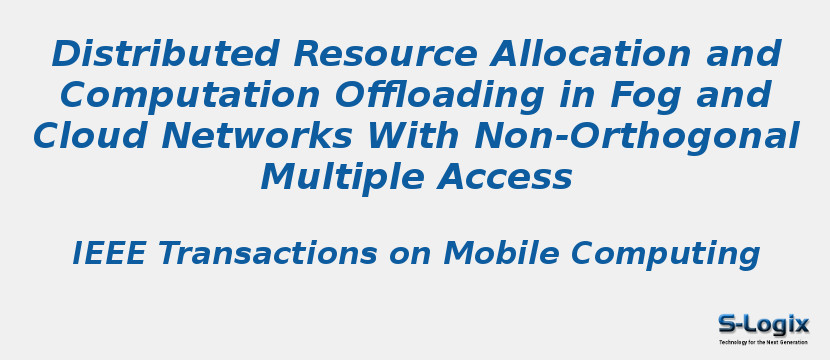Research Area: Fog Computing
Fog computing, complementary to cloud computing, has recently emerged as a promising solution that extends the computing infrastructure from the cloud center to the network edge. By offloading computational applications to the network edge, fog computing could support delay-sensitive applications and reliable access to nearby users. However, with the growing number of demands from various applications, fog computing may be overwhelmed and it may result in significant performance degradation. Thus, to process applications efficiently, we propose an integrated fog and cloud computing (FCC) approach, where users can offload a series of applications to nearby fog nodes (FNs) or cloud center cooperatively. Nevertheless, due to the constrained computing, storage, and radio resources, how to perform resource allocation to achieve an optimal and stable performance is an important problem. To address this issue, we focus on multiple resource allocation problem in a general system, which consists of multi-user, multi-FN, and a cloud center. In addition, to reduce offloading transmission latency and release the constraint of limited radio resource, non-orthogonal multiple access, which enables multiple users to transmit data to the same FN for offloading tasks on the same spectrum resource, is introduced into the proposed FCC approach. To this end, we formulate joint offloading decision, user scheduling, and resource allocation problem as an optimization problem that aims at minimizing the total system cost of energy as well as the delay of users. Furthermore, we decouple the original problem and transform it into a convex problem. Finally, we develop alternating direction method of multipliers based algorithms to solve the optimization problem in a distributed and efficient way. Simulation results show that the proposed approach achieves better performance compared with existing schemes.
Keywords:
Author(s) Name: Yiming Liu; F. Richard Yu; Xi Li; Hong Ji; Victor C. M. Leung
Journal name: IEEE Transactions on Vehicular Technology
Conferrence name:
Publisher name: IEEE
DOI: 10.1109/TVT.2018.2872912
Volume Information: Volume: 67, Issue: 12, Dec. 2018, Page(s): 12137 - 12151
Paper Link: https://ieeexplore.ieee.org/document/8477170
